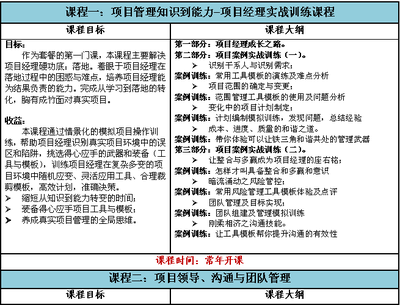How to LearnEnglish Effectively
“Howto learn English effectively?” Maybe many students have asked aboutthis question many times. Though there is no certain answer to thisquestion, there are some recognized ways that may help you learnEnglish effectively. Understanding them may be helpful to yourfuture English learning.
1. Effective English learning strategies
There are many ways to master English. You can attend Englishlectures at school or college. You can improve your English bylistening to English programs over radios, watching English courseson TV, or learning English through Internet. You can go to theEnglish corners to have a talk with English native speakers,imitating their pronunciation and intonation directly. Then whatare the effective English learning strategies? Although everystudent may have his/her own answer to this question and his/herown way of learning, there is something in common as to what theeffective English learning strategies are.
1.1 Cultivating a good study habit
A famous English philosopher Francis Bacon said:“Choose thelife that is most useful, and habit will make it the mostagreeable”. Good study habit makes you do what you shoulddo. Therefore, if you are eager to achieve success and ifyou want to make good use of the time, you should cultivate a goodstudy habit.
- Developing an interest inEnglish
Einstein said: “Interest is the best teacher”.American psychologist Bruner thought the best motivation oflearning is interest. So, we’d better develop our interest inEnglish at the beginning of our study. To develop an interest inEnglish study is not very hard. We may have the feeling ofsatisfaction and achievement from our English study when we areable to say something simple in English, talk with others orforeigners in English and act as others’ interpreters.
- Making elaborate and workableplans
Plansare always very essential, so we must make some elaborate andworkable plans before study. Learning English is a hard process ofbrainwork, therefore, persistence and willpower are necessary tocarry out the plan.
- Creating a good studyatmosphere
???Watching English movies and English TV programs, readingEnglish newspapers and magazines, listening to English songs andbroadcast, communicating with foreigners, as well as learningEnglish on some special occasions are all excellent and vividEnglish learning ways as we may combine English we learn with somecertain scenes to deepen our memory. So we should create a goodEnglish study atmosphere and find various kinds of opportunities topractice English whenever possible. Only in this way, can we have agood command of English.
1.5 ?Never just memorizing single Englishwords
Many students remember English words every day, but they can’tremember them so they are eager to find an effective way toenlarging their vocabulary. Then what is the effective way?
First, never just memorize single English words or be a dictionary!Learn by heart the whole sentences and the phrases that contain thenew words so we may know how to use the words. You have tounderstand the words through context. Looking up the meanings ofthe words will broaden your vocabulary while understanding themthrough context will help you remember them and teach you how touse the words correctly. Second, reading English book is a good wayto remember new words. If you cultivate the habit of readingEnglish every day, you will understand and learn to use more andmore words in the context of a passage. Third you may makesentences with the words you want to remember, and then read themaloud to yourself.
1.6 ?Developing the awareness of Englishgrammar
For most students, English grammar can be very challenging. Butthere are no shortcuts. Below are some ways to develop yourawareness of English grammar. If you follow, you will find thatlearning English grammar can be fun as well as functional.
The first step is to know the parts of speech, which is veryimportant because the whole English language is centered on theseparts of speech. Failing to understand even one of these may leadto misunderstanding.
The second step is to identify common mistakes. People who speakthe same language often make the same mistakes in English grammar.Find out what grammar points are often difficult for speakers ofyour native language. Pay extra attention to learning those grammarpoints.
The third step is to understand exactly why each sentence iswritten this or that way. When you read a sentence, ask yourself ifyou can make similar sentences. If you can't or you're not sure,find text book exercises for those grammar points andpractice.
The fourth step is to concentrate on grammar that is difficult foryou. If you are unsure of where your problems are, write a fewshort essays or paragraphs and ask a teacher to circle repeatederrors. Then you can look up your problems and practice it.
The final step is to translate from your native language intoEnglish. When you write or speak your own thoughts, it's easy toavoid complicated grammar. When you translate, you have to workwith whatever is on the page, even if the grammar isdifficult.
1.7 ?Making good use of dictionaries
At least one practicable and usable English dictionary is necessaryfor learning English. Many English learning dictionaries arebuyable in the bookshops. When a new dictionary comes out, the wayit's publicized, the press and the editors are all importantfactors for you to decide whether to buy it or not. Oxford AdvancedLearner’s English-Chinese Dictionary, Longman Dictionary ofContemporary English are the world’s best selling learner’sdictionaries. Both are corpus-based dictionaries. They use the mostaccurate and succinct way of defining a term, and then give goodexamples to illustrate a point. So it’s reasonable to buy one ofthe two dictionaries.
1.8 ?Practicing English whenever possible
I often hear students say like this “I have a bad memory, I alwaysforget what I’ve learned easily!” Whenever hearing this, I ask thestudent the question: “Why do you still remember the sentences‘good morning’, ‘I love you!’?” Their answer is obvious, “because Iuse and see and hear them frequently”. That’s the heart of thematter. Practice makes perfect. The frequently used sentences havebecome part of you. So, practice is the most effective way tomastering English. As long as you keep practicing, you can in theend handle a skill or technique perfectly no matter how difficultit is. Therefore, once you have learned something new in English,try to use them as frequently as possible in your speaking andwriting. Only when you practice it frequently, can you grasp itsooner or later.
1.9 ?Thinking positively and doingpersistently
People who say “I can’t speak English well” are correct. And peoplewho say “Every day in every way, my English is getting better andbetter” are also correct. What you think is what you get. Say thesecond sentence every day, and you will see greater improvement inyour English and confidence.
Excellent personality is one of the decisive factors in Englishstudy. What is success? Success is the reward you get after hardwork and your persistent pursuing. Although all roads lead to Rome,all ways to success are rugged. Only those who are persistent,patient, self-confident and determined can make a success of his orher learning
英语自主听力学习方法指导
进入大学后同学们会发现大学的学习和中学有许多不同的地方。中学学习是基础教育,教师会不厌其烦地讲授、辅导,学生学知识基本上是跟着老师转就可以了。而大学的情况不同,学业的成功与否在一定的程度上取决于同学们是否具有自主学习的能力。一旦具备了这种能力,学生就不再是知识的被动接受者,而是能用科学的方法主动探求知识、个性得以充分发展的学习的主人。
网络自主学习是《大学英语》的一个重要组成部分,是促进英语学习个性化发展的新模式。教育部最新颁布的《大学英语课程教学要求》中明确指出:各高等学校应根据本校的条件和学生的英语水平,探索建立网络环境下的听说教学模式,直接在局域网或校园网上进行听说教学和训练。对于刚进校的同学们来说,这或许是个陌生的概念。“没有老师的讲授,我们能自己掌控学习吗?”我们认为,只要同学们有足够的信心,就可以在自主学习的过程中发现学习的乐趣,切实有效地提高自己的英语听说能力。下面是我们给同学们的一些建议,希望能对大家的自主学习有所帮助。
一、转变观念,树立信心
进入大学后,学习观念要由依赖性转变为自主性,变“要我学”,为“我要学”。在这种精神状态下,学习者才能表现出积极主动的态度,才能以较强的自制力和意志克服学习中所遇到的各种困难。
二、制定合理的学习计划
制定合理的学习计划是网络自主学习的重要环节,也是一种自我监控的手段。对于网上学习任务,同学们要合理安排时间,避免期末考试前突击完成。此外,网上学习要和课外的听音结合起来,将精听和泛听结合起来,制订详细的课外听力训练计划,包括材料选择和时间安排等。选择适合自己水平的听力材料(如英美人士关于日常生活的交谈或CNN、VOA、BBC等国际新闻的主要内容等),并针对不同的听力任务,选择不同的听力方法。
三、加强自我监控、自我管理的能力
同学们要学会监控和管理自己的学习,要对学习效果进行自我诊断、自我检测、自我判断。对网上的学习效果要进行自我反思,找出听力中的薄弱环节,到底是词汇量不够,还是辨音能力差?是语言知识薄弱,对中西文化的差异了解不够,还是短时记忆能力差?一旦找出自己的不足,就要在课后制定计划进行有针对性的训练。对于网上学习中碰到的新单词,新的语言现象,要用心记下来,以便课后进行整理、归纳,这对于扩大词汇量,提高英语综合水平都是有益的。
四、注重听力技巧的运用
听音过程中要避免那些会妨碍听力理解的做法,如把注意力集中在听懂每个单词上,或逐词逐句翻译成中文等。要有选择地采用一些较好的听力技巧,才能达到事半功倍的效果。这些技巧包括:
1.预测:借助图例、标题或选择项,对文章谈论的主要话题、下文即将出现的内容等做出预测,可提高理解的准确率。在母语交流中,人们常利用已知的背景知识,预测对方将要表达的观点看法等,来更有效地捕捉相关信息,准确地理解对方的含义。外语听力理解过程跟母语听力理解过程是相同的,听话者没有必要也不可能把每个单词或单句都听得清清楚楚。听力强的同学善于通过预测选择要点,一个学生的预测能力越强,他对材料的理解能力也更强。因此,学会利用已知信息进行预测,可以帮助同学们有的放矢地捕捉相关内容,避开干扰内容,减少盲目记忆的负担。这样便可争取主动,对要听的内容做到有备而来。此外,听力好的同学对英语的篇章结构有一定的了解,善于抓住段首句和过渡性词语,理解篇章的中心思想。听力差的同学往往不懂得利用已知信息进行合理的预测,而把注意力集中在所听到的单个词汇和句子上,抓不住要点,无法了解篇章的主要信息。
2.做笔记:即使是听力理解能力很强的同学,也难以记住长段文章或会话中的全部细节。如时间、地点、电话号码、价格、人物、事件等,这无疑会影响听话者对材料的正确理解。所以在听音过程中抓住有利时机快速记下重要信息是有必要的。速记的时候可采用缩写词、符号、简单的图形等帮助自己回忆。
3.联想:听的过程中要善于联系自己已有的知识(包括文化背景、生活常识等)和亲身体验来理解材料的内容,听力强的同学不仅能充分利用已有信息填补材料中没有听到的缺失信息,还能根据上下文的关系,语调的变化,对没听懂的部分进行合乎情理的联想,并从下文中获得的信息来纠正和补充先前获得的不准确或不全面的信息,使自己在整个听力过程处于一种积极主动的状态,从而更好地理解篇章的内容。
4.推理:推理策略是指结合已有知识和听力材料中所获得的新信息来推测篇章的隐含信息。听力强的同学能够根据说话者的语音语调、重音选择和采用的特殊句型(如虚拟语气)来推测出说话者的态度以及其他相关信息,还可以结合自己的已有知识和材料中获得的新信息来对结果做出合理的推论,判定谈话发生的地点和说话者之间的关系等相关内容。
5.切分话语:听力强的同学善于依据讲话者的语调和停顿,把接受到的语言信号进行切分。恰当地划分听力单位,保持短时记忆和听力理解的协调与统一是把握听力材料内容的关键。
五、了解中西文化差异
听力理解的另一个障碍来自中西文化的差异。不同文化中的语言符号有着不同的意义和含义,能够引起人们不同的联想。比方说红色在中国被认为是吉祥喜庆的颜色,因此有“红包”,“红运”,“开门红”之说,而在西方文化中,红色常常蕴含“危险”,“生气”之意,如“bein the red (赤字;亏空)”,“red alert(紧急警报)”等。这样的例子不胜枚举。只有熟悉了这些差异才能更好地了解篇章的含义。因此,同学们要通过各种渠道,构建听力理解所需广泛的背景知识和充分的文化底蕴。
六、积累词汇
词汇是语言的基本构成要素,听力理解能力的强弱跟同学们的词汇量大小有着不可忽视的联系。同学们要制定合理的计划,切实扩大自己的词汇量。此外,大家要特别注意口语中的一些常用习语和成语,因为在多数情况下,对它们的理解不能简单等同于其组成词的相加。比方说“undertheweather”这种表达法和“天气”无关,它是被用来形容某个人身体不舒服。如果我们不熟悉这些习语,就很难理解话语的内涵。因此,同学们在平时的学习中要多积累这方面的词汇。
七、大声朗读
朗读活动有助于培养过硬的语群感。听力理解能力强的同学,会将听到的信息划分成恰当的语群,从而保持短时记忆和听力理解的协调与统一。朗读可以训练同学们对语群的正确划分,增强语群感,从而提高大家对听力材料理解的完整性和及时性。
希望以上建议对同学们的网络自主学习会有所帮助。同学们要把自己视为学习的主人,要主动规划自己的学习过程,制定学习计划,加强自我管理,减少自主学习中的随意性,从而真正有效地提高自己的听力水平。在这一过程中,如果同学们遇到困难,我们也鼓励大家从任课老师和同学那儿寻求帮助。
重庆大学外国语学院为同学们提供了丰富的网上学习资源,愿大家充分享受网上学习的乐趣,使自己的英语水平更上一层楼。
 爱华网
爱华网



